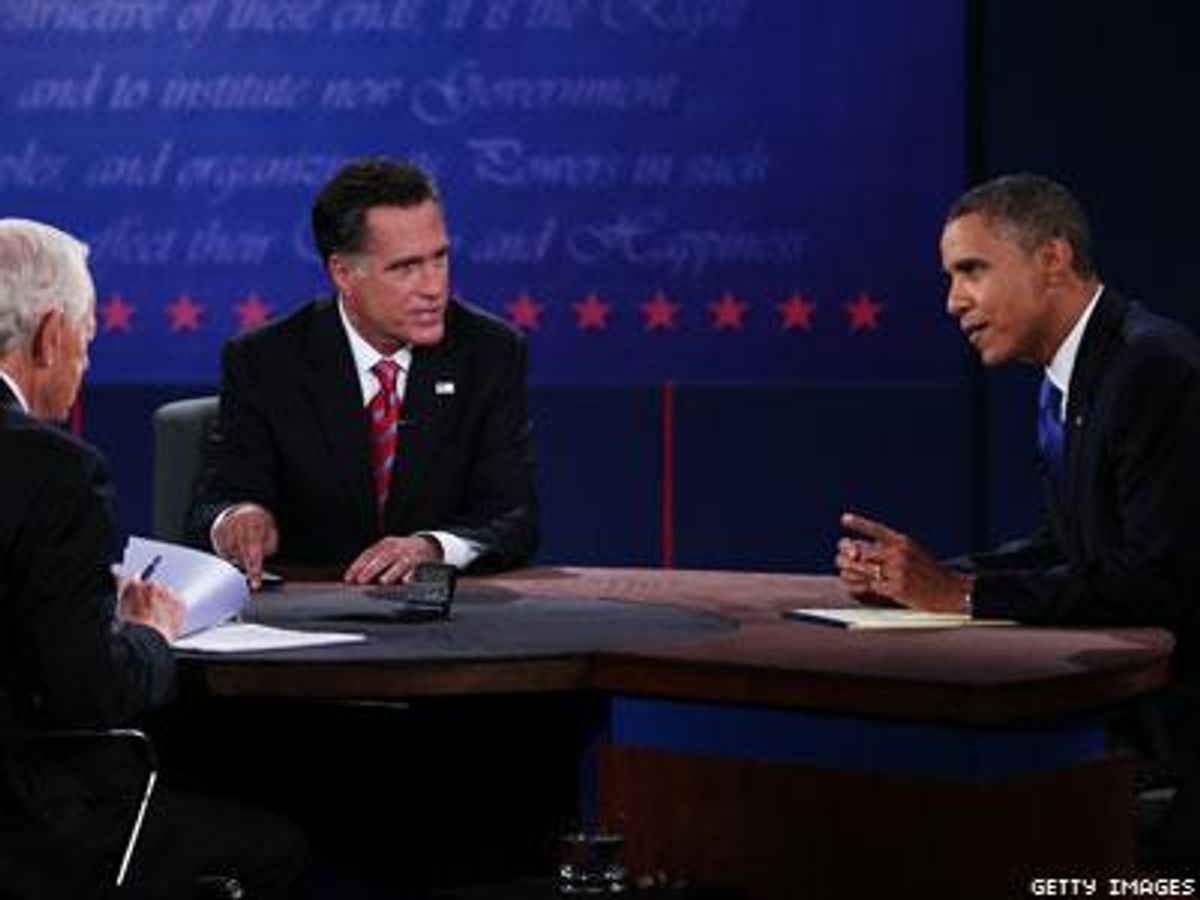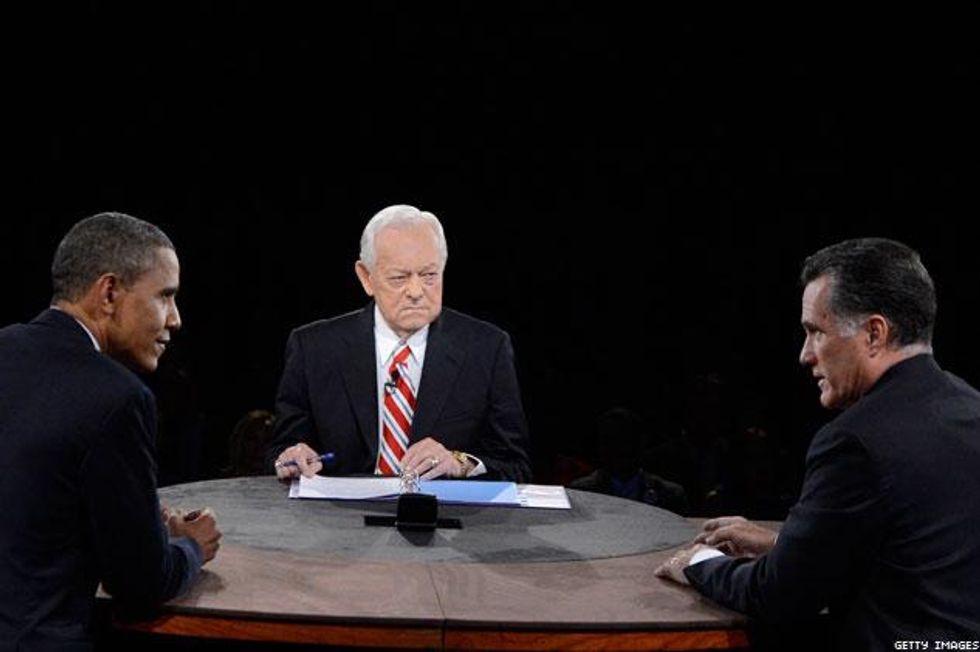
With four debates, and hours worth of questions and answers, the words "gay" or "lesbian" never broke through.
The closest anyone ever came to bringing up LGBT issues came during the first debate when President Obama listed repeal of the "don't ask, don't tell" policy among accomplishments he said were made on behalf of the middle class. But DADT wasn't raised during Monday's last debate, which focused on foreign policy, despite its effect on the military.
Romney opposed repeal of DADT, but after it ended, he said the policy shouldn't be reinstated. Still, the implications of DADT's demise are vast, including whether same-sex couples married in their home states deserve the same benefits given straight couples. Or, there are more practical considerations. A list of miltary supporters being touted by Romney, for example, includes Marine Corps commandant Gen. James Conway, who has said he supports segregating the military by sexual orientation, with separate housing for gays and straights.
The candidates also weren't asked whether they support tying foreign aid to support for human rights, including equality for LGBT people whose relationships remain criminal in many parts of the world.
Still, Romney answered a question on how he describes the United States' role in the world by casting himself as a defender of human rights.
"America has a responsibility and the privilege of helping to defend freedom and promote the principles that make the world more peaceful," Romney said, listing as his values "human rights, human dignity, free enterprise, free expression."
For his part, Obama repeatedly said he wanted to ensure the rights of women and religious minorities are protected in the Middle East. He attacked Romney on foreign policy as stuck in the past and unable to be clear enough to lead.
"The 1980s are now calling to ask for their foreign policy back," Obama told Romney, noting the Cold War has long been over. "You seem to want to import the foreign policies of the 1980s, just like the social policies of the 1950s, and the economic policies of the 1920s."
That vague reference to outdated views on social issues was perhaps the closest he or anyone else came to that actual set of concerns. For LGBT Americans hoping to hear more than they had so far, the debates were a disappointment. But there may be a silver lining.
During the Democratic primary in 2008, Jonathan Capehart of The Washington Post actually served as a moderator for a forum with an LGBT focus. But in a column on Monday he argued that, "Silence is golden on gay issues."
"Sure, there are plenty of issues facing lesbians, gay men and bisexual and transgender (LGBT) Americans that ought to be discussed," Capehart wrote. "But after years of gays being used in bigoted ways as wedges in American politics by Democrats and Republicans, the silence is a blessed relief."



















































































Viral post saying Republicans 'have two daddies now' has MAGA hot and bothered